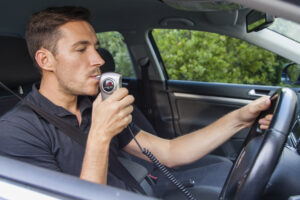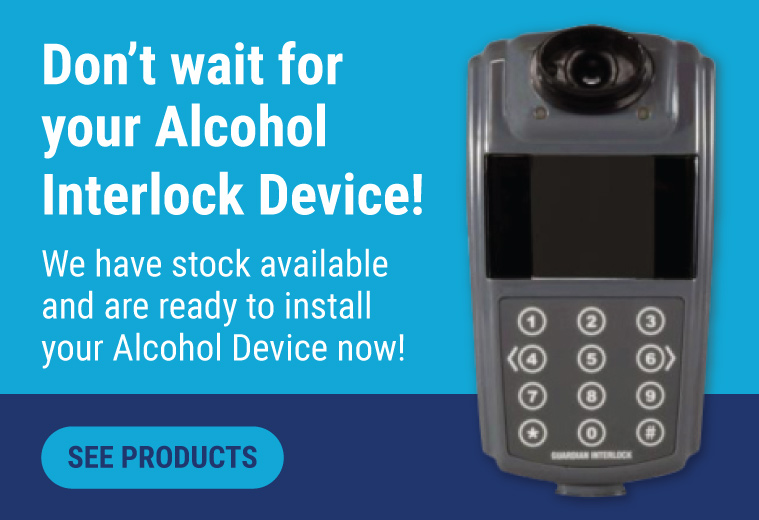
How An Ignition Interlock Device Keeps You Safe on the Road
If you have been convicted of a drink driving offence, you may be required to undertake an Alcohol Interlock Program as part of a staggered return to unrestricted driving. These programs require a specialised piece of equipment within your car, known as an ignition interlock device (IID). These devices do not allow the driver to operate their vehicle if they have consumed any alcohol.
In essence, the purpose of an ignition interlock device for cars is to assist these individuals in separating drinking and its related behaviours from driving. However, you may be left wondering “how does an interlock device work?”. While the science behind these interlock systems is relatively complex, the principles of their operation are easy to understand.
How Does An Interlock Device Work?
Similar in size to a mobile phone, these devices are directly connected to the ignition of a vehicle, and they prevent it from starting until a breath sample that is free from alcohol is provided. If you’re not sure how an interlocking device works, think of it as a self-administered version of the random breath test that state police regularly conduct on roadsides. Click here to see the interlock in action.
The driver simply needs to blow into the ignition device’s mouthpiece, and if the results are in a satisfactory range, the interlock will allow the vehicle to be started. While an ignition interlock system is used primarily within drink driving penalties, it may also be installed voluntarily by safety conscious businesses or private individuals. Generally, these installations are undertaken as a precaution by individuals who wish to prevent themselves or their loved ones from drinking while under the influence of alcohol, or by businesses to ensure their employees adhere to company policies or industry regulations.
How Does An Interlock Device Work To Keep You Safe?
The most modern interlock car systems make use of ethanol fuel sensors to ensure accurate readings are conducted each and every time the driver steps into their vehicle. While the BAC limit for fully licensed drivers in New South Wales is 0.05, these systems do not allow for any alcohol to be present within the drivers’ breath test, ensuring they are aligned with the Transport for NSW (TfNSW) guidelines.
What Information Does An Interlock Device Record?
Each and every time an interlocking device is used, it records a range of information for later reference and in NSW and VIC including a photo of the person operating the device if they are participating in an offender program. These interlock car devices also make note of the date and time that a test was performed, as well as the result that was read. This ensures no BAC readings over 0.00 and hence failed breath tests, are missed.

The interlocking device also takes note of whether a rolling retest has been skipped by the driver, and whether the subsequent testing opportunity was not completed. Similarly, any attempts to tamper with the system or even remove the ignition device will be noted.
This extensive information-gathering process ensures the driver adheres to the rules governing the use of these devices and makes sure the driver does not breach the rules of their phased return to driving. If a breach of these terms does occur, the individual may be disqualified from driving once again, and the duration of their mandated interlock program may be extended.
Things To Remember When Using An Interlock Device
Now that you understand how interlock devices work, it’s important to learn as much as you can about the intricacies of these devices. While the team at Guardian Interlock will give you a comprehensive overview of how your interlocking device works and the policies that must be adhered to, it’s recommended that you keep the following factors in mind.
What Happens If You Fail the Breath Test?
If you do fail a required breath test, the ignition device will provide a “fail” reading, and the ignition to the vehicle will not start. You will have the opportunity to complete a second breath test shortly afterward, but a specified number of failed tests will immobilise the vehicle.
Should this happen, the information will be sent to your state roads and traffic authority, and a decision may be made to extend the duration of your interlock program.
Regular Servicing Is Required
At regular intervals, a technician will carry out regular maintenance on the interlock device in your car. This will centre around a holistic check to ensure every component of the device is working properly, and any programming updates will be made. Following this, any data that has been collected since its last service will be downloaded and be available for review by the relevant monitoring authority.
Random Breath Tests
While the interlock device in your car will require you to complete a breath test when you begin driving, it will also require you to undertake regular random breath tests, known as rolling retests. The timing of these tests is not predetermined, and they can occur at any time when you are driving your vehicle. While they may be inconvenient, they are designed to ensure the driver does not consume any alcohol while operating the vehicle.

These tests will allow the driver time to pull over and stop the vehicle in a safe location to conduct the breath test. It’s important to note that if a “fail” is registered on a rolling test, the vehicle will not simply stop. However, a series of alarms will sound, and your vehicle’s indicator lights will flash until you turn the ignition of your vehicle off. The interlock device in your car will also register this result within its data set.
Do You Need To Install An Alcohol Interlock Device?
Guardian Interlock is among Australia’s most reputable alcohol interlock providers, with locations in every state in Australia. Therefore, you can be sure that your Guardian-approved service centre is qualified for interlock device installation, servicing, and removal of your interlock device, and our devices are compliant with your state’s regulations. Email admin@guardianinterlock.com.au or call 1300 881 005 today to get started with your alcohol interlock program. We understands how essential a vehicle is, whether for work purposes, family responsibilities, or other commitments. We’re committed to helping our clients remain compliant and on the road. Our customer care representatives are available to take your calls 8.30 am – 5:00 pm Monday to Friday. We also have an Emergency assistance line available 24 hours a day, seven days a week.


